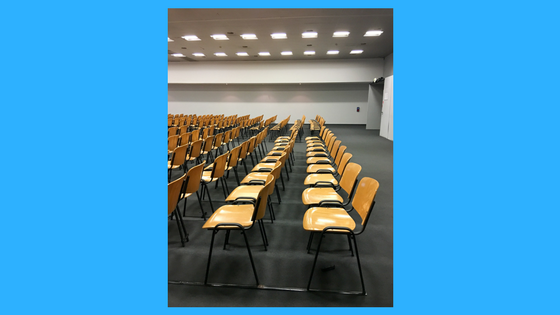Gathering Space: Meeting Room Policies in the Age of Charlottesville

If the library of the future is a gathering space, who will be allowed to gather?
This may seem like an absurd question as librarians are proud to be defenders of free speech and intellectual freedom. The Library Bill of Rights states, “Libraries which make exhibit spaces and meeting rooms available to the public they serve should make such facilities available on an equitable basis, regardless of the beliefs or affiliations of individuals or groups requesting their use.”[1] Unfortunately, our high and mighty reasoning gets tricky when those “beliefs and affiliations” creep into the realm of hate speech.
Much has been discussed about the role of the public library as a neutral territory for the free exchange of ideas. There have even been challenges to the notion that libraries should be[2], or ever were[3], truly neutral spaces. If you dig into ALA’s interpretation of the Library Bill of Rights as it relates to Equity, Diversity and Inclusion, it more clearly charges libraries that they “should not merely be neutral places for people to share information, but should actively encourage socially excluded, marginalized, and underrepresented people to fully participate in community debates and discussions.”[4]
For library administrators, it can be difficult to reconcile providing a venue for potential hate speech while actively encouraging marginalized populations to participate in community discussions. These seem to be at odds with one another. Luckily, library policy does not live in a vacuum. Most public libraries are governed by a board of directors or municipal authority which approves policy. It is in this intersection between professional library ethos and this community connected governing body, that a reasonable middle ground can be reached. It is in this same intersection where library director and library board thrive.
It is also in this space where one can find an alternative to library as neutral, or biased. Libraries are rational. It is not the library’s responsibility to provide a platform for any viewpoint whether it is in our meeting rooms or on our shelves. It is their responsibility to be a democratic institution where the public feels safe. For these reasons, it is good practice for library boards and administrators to thoughtfully review meeting room policies on a regular basis with a goal of keeping your environment welcoming to your community while allowing for the respectful exchange of viewpoints.
References
[1] http://www.ala.org/advocacy/intfreedom/librarybill
[2] https://americanlibrariesmagazine.org/2017/01/03/never-neutral-critlib-technology/
[3] https://meredith.wolfwater.com/wordpress/2017/09/01/whose-rights-matter-more/
[4] http://www.ala.org/advocacy/intfreedom/librarybill/interpretations/EDI
Tags: free speech, freedom of speech, libraries and politics, library as public space, library bill of rights, political climate












